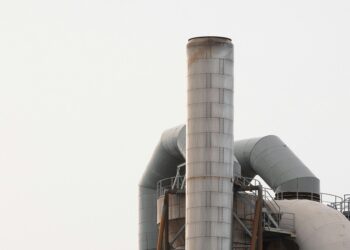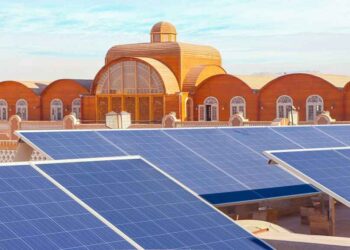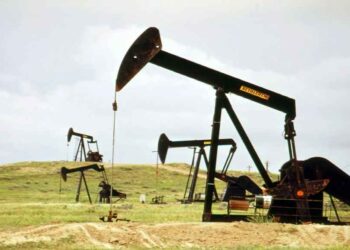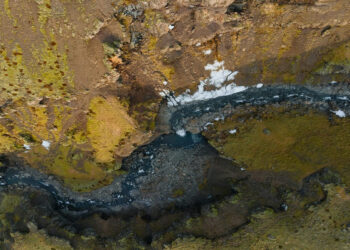The Wood River Refinery is an oil refinery located in the small village of Roxana in the state of Illinois, US. The refinery is situated about 15 miles north of St Louis, Missouri, along the eastern edge of the Mississippi River.
Built in 1918 by Shell, the Wood River Refinery produces 306,000 barrels of refined oil per day. The facility is owned jointly by ConocoPhillips and Cenovus Energy, formerly known as Encana. Their joint venture company WRB Refining, created on 1 July 2007, operates the refinery.
In 2008, WRB Refining embarked on an expansion project to increase the refining capacity to 400,000bpd. Known as the Coker and Refinery Expansion (CORE), the project is currently underway and is scheduled for completion in 2010. The expansion will allow the refinery to process heavy oil from Alberta, increase its clean product yield and avoid the production of low-value asphalt. The project is estimated to cost in the region of $4bn.
The hydrocracker and reformer at the Wood River refinery were shut down on 4 June 2010 because of a storm-related power breakdown.
Wood River Refinery
“Wood River produces 306,000bpd of refined oil.”
The facility is spread across 2,200 acres and is the largest among ConocoPhillips’ refineries.
Equipped with multiple-trains, the refinery features alkylation, catalytic cracking, catalytic hydrocracking, catalytic reforming, desulphurisation, hydrogen, delayed coking and vacuum distillation capabilities.
Wood River output
The Wood River Refinery processes a combination of light and heavy crude oil with low and high sulphur content. Crude oil supplied domestically and from foreign sources including the Gulf of Mexico and Canada is brought to the refinery via several pipelines.
Transportation fuels including petrol, diesel and jet fuel are produced at the facility. The refinery also produces petrochemical feedstock and asphalt.
Connection details
The Wood River facility receives oil shipped directly through the Enbridge system of pipelines. These pipelines span 13,500km (8,500 miles) in several lines and carry approximately 75% of Canada’s crude oil from the Western Canadian Sedimentary Basin.
“The expansion will increase the refinery’s total bitumen handling capacity by 700%.”
A new pipeline is being constructed to carry crude oil for the expanded capacity at the refinery. Known as Keystone, the 1,073 mile pipeline will transport sandy crude oil from Alberta, Canada. The first phase of the pipeline construction was completed on 30 June 2010. Commercial deliveries are underway to the Wood River Refinery.
Refined products from the facility are delivered to Chicago, Illinois and Indiana via the 309 mile-North Line system, and the 354 mile-East Line system, both originating from the refinery.
Coker and refinery expansion
The CORE project began in 2008 after a prolonged process of acquiring air permits. The expansion will add new facilities including a four-drum delayed coking unit and related coker units.
Distilling unit 1 will be upgraded metallurgically and its equipment will be revised. The second distilling unit, which has been lying idle for a long time, will be restarted to increase the crude unit processing capacity. The distilling west catalytic cracking unit along with its related equipment will also be restarted to facilitate the processing of additional gas oil.
Additional equipment such as the lube vacuum fractionation column and the catalytic feed hydrotreater will be restarted as the hydrocracker post-fractionator and ultra low sulphur diesel hydrotreater, respectively.
The expansion includes the installation of a new vacuum flasher and a hydrogen plant. The vacuum flasher will be used to process heavy crude oil that has high content of sulphur and acid. To manage the increased acid charge and change in unit yields, fluid cracker units I and II will also be metallurgically upgraded. The expansion will increase the refinery’s total bitumen handling capacity by 700% to 200,000bpd.
Wood River contractors
“Fluor Corporation was awarded the construction contract.”
The construction contract for the expansion was awarded to Fluor Corporation on 3 December 2008.
As well as detailed engineering and procurement services, the contractual scope includes construction management services for the refinery’s process, utilities, offsites and retrofitting sections of the current refinery to include the new feedstock from Canada.
Fluor will additionally provide owner management team support to WRB throughout the project.

















































